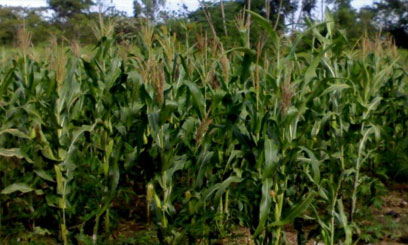
She said the labeling requirements which were put in place to give the consumer a choice are complicated and technically demanding/FILE
Chief Executive Officer Paloma Fernandez said on Thursday that the number of applications from millers and other stakeholders to import or trade in GMO’s was minimal because of fear of contravening the conditions.
She said the labeling requirements which were put in place to give the consumer a choice are complicated and technically demanding.
“The regulations are prohibitive as reflected by the high technical, financial and legal costs. A fine of Sh20 million or imprisonment of ten years or both is excessively punitive for a product that has already been approved as safe by the National Biosafety Authority,” Fernandez said.
She suggested that the National Biosafety Authority should organise a comprehensive capacity building programme on compliance with the labeling regulations for all relevant stakeholders including the millers.
“Labeling and traceability will further require extensive public investment to train inspectors, extension for farmers and paying for testing facilities,” she noted.
“If millers confine themselves to buying only GM free maize from farmers due to all the regulations in place, there will be no incentive to adopt or grow GM maize in Kenya even if the latter is attractive or more competitive in the pricing,” she added.
She said that despite the Biosafety Act and import regulations allowing GMOs, it was hard for millers to import due to the stiff labeling regulations.
The Association now wants the government to repeal the regulations that require millers to label all the genetically modified products they import.
She added that the 90-150 days required for the National Biosafety Authority to approve imports of GMO’s according to the Act was unreasonable.
“In a time of food scarcity and drought, a period of three to five months to get an approval is just not practical,” she commented.
Last year, Public Health Minister Beth Mugo ordered that all GMO foods coming into the country must be clearly labeled to protect consumers and give them a choice according to the Food, Drugs and Chemical Substances Act.
“There is not much space on food products for GM labels,” Fernandez resisted adding “It is unfair to the GM food industry as there is no conclusive evidence that their products are inferior in any way.”
GMO’s are defined as products of Modern Biotechnology that involve the manipulation of the genetic material of organisms through genetic engineering procedures.
Adoption of Genetically Modified foods has been a touchy issue in Kenya with opponents saying they are a health risk.
In 2009, the National Biosafety Authority was put in place to address safety for the environment and human health in relation to modern biotechnology.


































